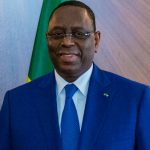Politics
Senegal Politics
This page explores Senegal’s political structure incorporating real-time RSS feed news and videos. By harnessing the power of RSS feeds, visitors can stay informed about the latest developments in Senegal’s politics as they happen. The dynamic nature of these feeds ensures that users receive up-to-the-minute updates on political events, policy changes, and significant milestones, enabling them to stay abreast of the ever-evolving political scene.

Macky Sall
4th President of Senegal
Incumbent
Assumed office
2 April 2012
Image credit
Senegal, located in West Africa, operates as a semi-presidential republic with a multi-party system. Known for its stability and democratic traditions, Senegal has been a model of democracy in the region.
The President of Senegal, elected by popular vote for a five-year term, serves as the head of state and government. The President appoints a Prime Minister, who is responsible for the day-to-day administration of the government. The Parliament of Senegal, consisting of the National Assembly and the Senate, serves as the legislative body.
Senegal has a vibrant political landscape with numerous political parties representing various interests and ideologies. The two major political parties are the Alliance for the Republic (APR) and the Senegalese Democratic Party (PDS), although other parties, such as the Socialist Party (PS) and the Union for Progress and Renewal (UPR), also play significant roles.
Senegal has a long history of political stability and peaceful transitions of power. The country has held regular elections since gaining independence from France in 1960, and power has been peacefully transferred between different political parties on several occasions.
The country has made significant progress in consolidating democratic institutions, upholding the rule of law, and respecting human rights. Senegal is known for its commitment to freedom of expression and a vibrant civil society. The media enjoys relative freedom, and there is active public participation in political processes.
Senegal faces various challenges, including poverty reduction, economic development, and improving social welfare. The government has implemented initiatives to promote economic diversification, strengthen agricultural production, and attract foreign investment. Social programs have been introduced to address education, healthcare, and social security. Senegal actively participates in regional and international affairs. The country plays a prominent role in organizations such as the African Union (AU), the Economic Community of West African States (ECOWAS), and the United Nations (UN). Senegal has been involved in peacekeeping efforts and has contributed to regional stability. As with any nation, Senegal continues to address issues such as corruption, regional disparities, and infrastructure development. Ensuring inclusive governance, promoting sustainable development, and addressing social challenges are ongoing priorities.
Senegal’s political landscape reflects a commitment to democratic principles, stability, and social progress. The country’s ability to continue democratic reforms, promote economic growth, and address social inequalities will shape its political trajectory and contribute to a prosperous future for its citizens.
Unless other sources are listed, original content is provided by ChatGPT. ChatGPT may produce inaccurate information about people, places, or facts. #Senegal #SenegalPolitics #SenegalNews #SenegalNewsToday #SenegalRSSFeed #BlahFace



